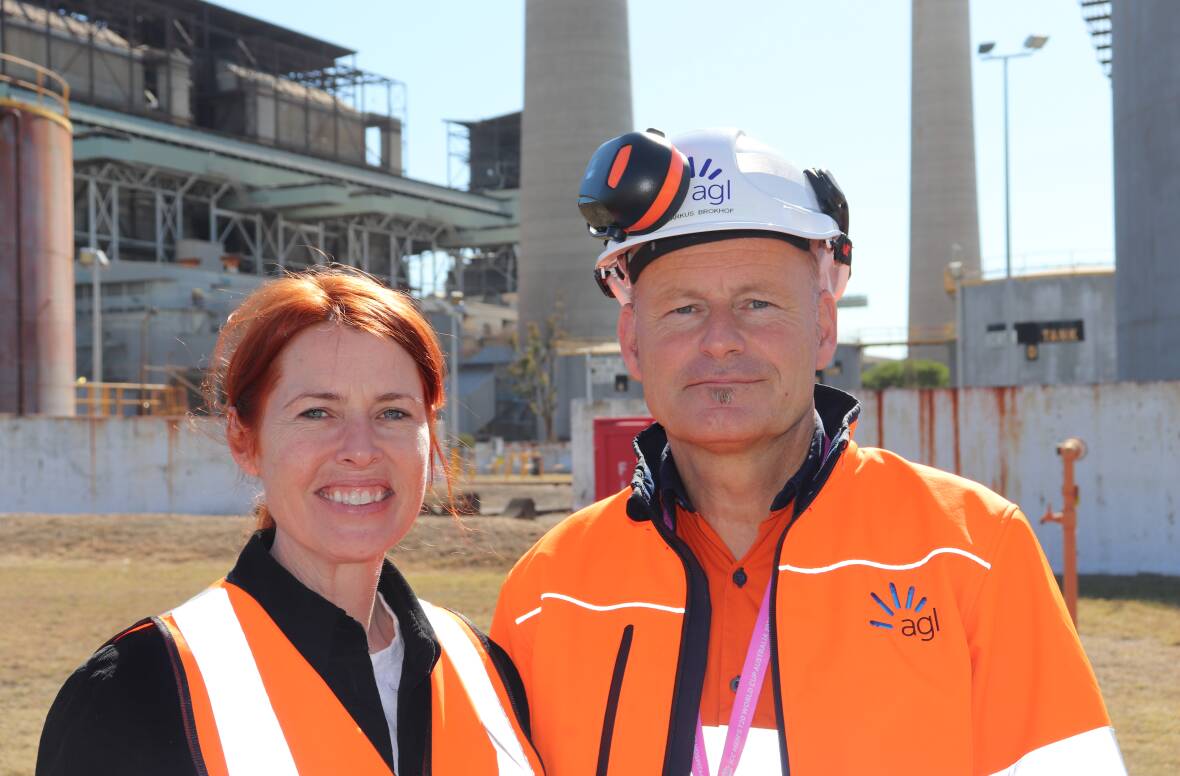


Open and clear communication between energy companies, their workforces and surrounding communities was essential to achieve a successful clean energy transition, one of AGL's top executives believes.
The energy giant's chief operating officer, Markus Brokhof, made the comments while briefing a delegation of business, government, education and civic leaders from Victoria's Latrobe region on AGL's plans to transform the former Liddell Power Station site into a $1billion clean energy industrial hub on Tuesday.
The tour was part of collaboration between the Committee for the Hunter and Committee for Gippsland, which are sharing their experiences gained along the road to a clean energy future.
Liddell coal-fired power station closed in April following more than 50 years of service.
About 65 per cent of the 180-person Liddell workforce transferred to the neighbouring Bayswater generator, which is due to close between 2030 and 2033.
Agriculture, clean energy and firming technologies, composting, coal ash recycling, green metals and advanced manufacturing are among the projects planned for the Liddell clean energy industrial hub.
A similar hub is planned for the site of Victoria's LoyYang A coal-fired power station, which is due to close in 2035.
Mr Brokhof said it was essential that the company effectively communicated its vision with staff and communities in order for the hubs to be successful.
"We have been updating our workforce and keeping constant dialogue open with them," he said..

"We are letting them know what kinds of industries we are looking for and what are the job categories that we hope to see mature over time."
"we must demonstrate our vision effectively, otherwise why would a young person choose to come to Bayswater or LoyYang?"
The project is closely linked to the work of the federal government's recently announced Net Zero Authority, which was established to assist communities impacted by the clean energy transition.
Committee for the Hunter chief executive Alice Thompson said it was essential that impacted regions engaged with the government with a clear and united voice about their needs and ambitions.
"We have two major coal regions in Gippsland and the Hunter working together to identify shared priorities and align advocacy for coal regions in transition. We know we need to collaborate to compete - not with each other but in an global economy that will be reliant on clean energy and skilled workforce that our regions can provide," she said.
"Through a series of site visits and workshops, we are sharing knowledge and experiences, learning from each other to inform our respective journeys. The connections being forged will ensure the dialogue and partnerships continue beyond this tour."







